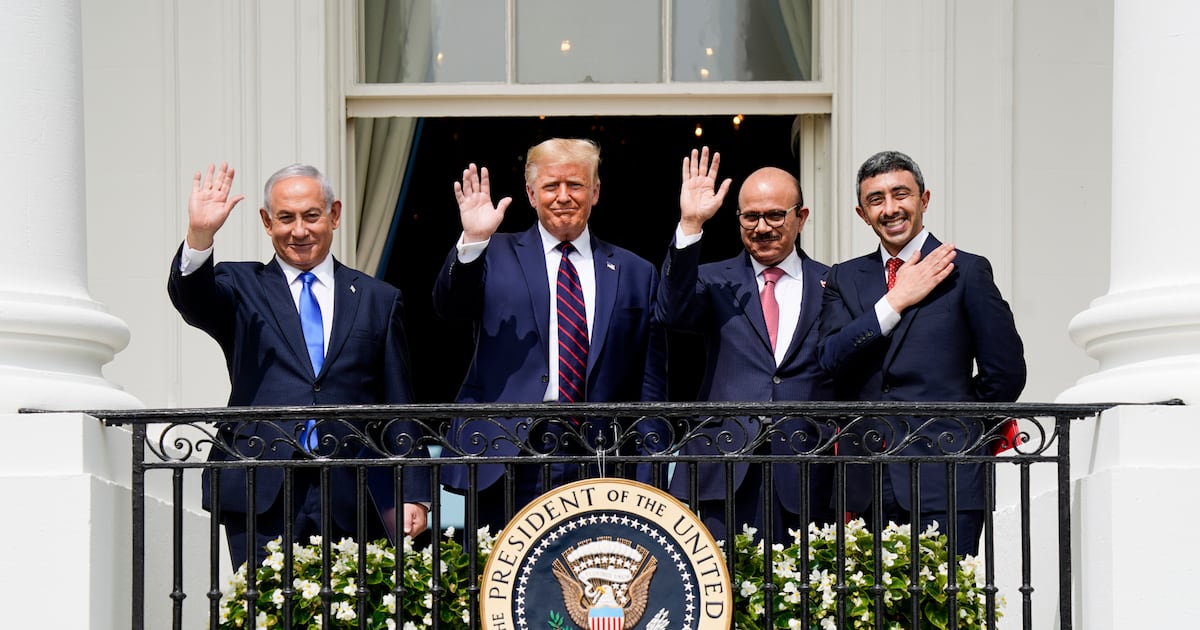World
UAE’s Intervention Prevents Israel’s West Bank Annexation Plans

Israel has halted discussions on a plan to annex parts of the occupied West Bank following a strong statement from the United Arab Emirates (UAE). The UAE’s intervention emphasized that such a move would significantly undermine the principles of the Abraham Accords, which normalized relations between the UAE and Israel. This agreement, signed in 2020 during the administration of then-U.S. President Donald Trump, marked a historic shift in Middle Eastern diplomacy.
The Abraham Accords aimed to foster peace by establishing diplomatic relations among Israel and several Arab nations, including the UAE and Bahrain, with Morocco and Sudan joining later. The UAE had made it clear that its normalization of relations was contingent upon Israel’s commitment to abandon plans for annexation. Following comments from Israel’s far-right finance minister Bezalel Smotrich, who advocated for the annexation of large areas of the West Bank, UAE’s envoy Lana Nusseibeh reaffirmed the accords’ intention to support the Palestinian people and their quest for statehood.
Since the establishment of diplomatic ties, the UAE and Israel have facilitated visa-free travel and promoted tourism and trade between the two countries. Nevertheless, the UAE’s position has been complicated by the recent escalation of violence in Gaza. In October 2023, Hamas launched a significant attack on Israel, prompting a strong condemnation from the UAE, which criticized the ongoing Israeli military operations in Gaza that have resulted in civilian casualties. Live broadcasts of these military actions have intensified public opposition to normalization with Israel across the Arab world, effectively putting such initiatives on hold.
The humanitarian crisis in Gaza has prompted the UAE to take action, with nearly 70 airdrops of humanitarian aid and the dispatch of thousands of lorry loads carrying food and medical supplies to the region. This response underscores the UAE’s commitment to humanitarian support, even as political relations are strained.
Historically, Egypt was the first Arab nation to establish peace with Israel through a treaty in 1979, followed by Jordan in 1994. While these agreements have been supported by Arab leaders, public sentiment in the region remains largely opposed to normalization, especially as the Palestinian issue remains unresolved and the population continues to face occupation.
Looking ahead, the potential for new normalization agreements appears dim as long as the conflict in Gaza persists. Saudi Arabia, which has taken a leading role in the Arab and Muslim worlds, has condemned the violence in Gaza and has set the establishment of a Palestinian state with its capital in East Jerusalem as a prerequisite for normalizing relations with Israel.
In a significant diplomatic move, Saudi Arabia and France are set to convene a United Nations meeting where nations such as Canada, the United Kingdom, France, Australia, Malta, and Belgium are expected to recognize a Palestinian state. This would add to the growing number of UN member states—currently 147 out of 193—that support this stance. The ongoing situation underscores the complex interplay between international relations, regional politics, and the humanitarian crisis in Gaza, as stakeholders navigate the path toward potential peace and stability in the region.
-

 Top Stories3 months ago
Top Stories3 months agoTributes Surge for 9-Year-Old Leon Briody After Cancer Battle
-

 Entertainment4 months ago
Entertainment4 months agoAimee Osbourne Joins Family for Emotional Tribute to Ozzy
-

 Politics4 months ago
Politics4 months agoDanny Healy-Rae Considers Complaint After Altercation with Garda
-

 Top Stories4 months ago
Top Stories4 months agoIreland Enjoys Summer Heat as Hurricane Erin Approaches Atlantic
-

 World5 months ago
World5 months agoHawaii Commemorates 80 Years Since Hiroshima Bombing with Ceremony
-

 Top Stories3 months ago
Top Stories3 months agoNewcastle West Woman Patricia Foley Found Safe After Urgent Search
-

 Top Stories5 months ago
Top Stories5 months agoFianna Fáil TDs Urgently Consider Maire Geoghegan-Quinn for Presidency
-

 World5 months ago
World5 months agoCouple Convicted of Murdering Two-Year-Old Grandson in Wales
-

 World5 months ago
World5 months agoGaza Aid Distribution Tragedy: 20 Killed Amid Ongoing Violence
-

 World5 months ago
World5 months agoAristocrat Constance Marten and Partner Convicted of Infant Murder
-

 Top Stories4 months ago
Top Stories4 months agoClimbing Errigal: A Must-Do Summer Adventure in Donegal
-

 Top Stories4 months ago
Top Stories4 months agoHike Donegal’s Errigal Mountain NOW for Unforgettable Summer Views









